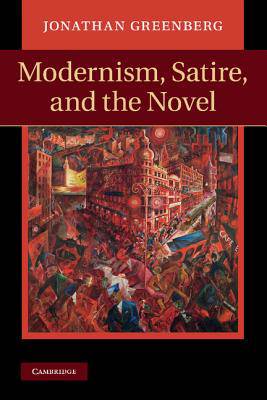
- Afhalen na 1 uur in een winkel met voorraad
- Gratis thuislevering in België vanaf € 30
- Ruim aanbod met 7 miljoen producten
- Afhalen na 1 uur in een winkel met voorraad
- Gratis thuislevering in België vanaf € 30
- Ruim aanbod met 7 miljoen producten
Zoeken
Omschrijving
In this groundbreaking study, Jonathan Greenberg locates a satiric sensibility at the heart of the modern. By promoting an antisentimental education, modernism denied the authority of emotion to guarantee moral and literary value. Instead, it fostered sophisticated, detached and apparently cruel attitudes toward pain and suffering. This sensibility challenged the novel's humanistic tradition, set ethics and aesthetics into conflict and fundamentally altered the ways that we know and feel. Through lively and original readings of works by Evelyn Waugh, Stella Gibbons, Nathanael West, Djuna Barnes, Samuel Beckett and others, this book analyzes a body of literature - late modernist satire - that can appear by turns aloof, sadistic, hilarious, ironic and poignant, but which continually questions inherited modes of feeling. By recognizing the centrality of satire to modernist aesthetics, Greenberg offers not only a new chapter in the history of satire but a persuasive new idea of what made modernism modern.
Specificaties
Betrokkenen
- Auteur(s):
- Uitgeverij:
Inhoud
- Aantal bladzijden:
- 240
- Taal:
- Engels
Eigenschappen
- Productcode (EAN):
- 9781107008496
- Verschijningsdatum:
- 31/10/2011
- Uitvoering:
- Hardcover
- Formaat:
- Genaaid
- Afmetingen:
- 155 mm x 231 mm
- Gewicht:
- 498 g

Alleen bij Standaard Boekhandel
+ 366 punten op je klantenkaart van Standaard Boekhandel
Beoordelingen
We publiceren alleen reviews die voldoen aan de voorwaarden voor reviews. Bekijk onze voorwaarden voor reviews.











